#film theory reference
Text


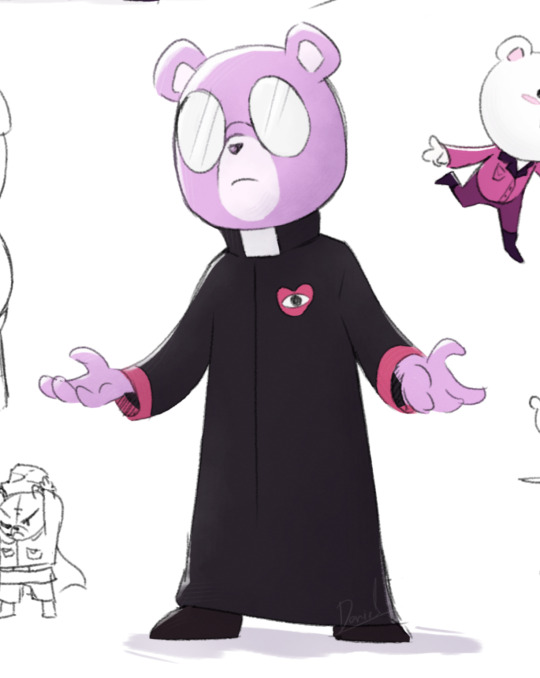

When the funny Happy Tree Friends war movie actually hits real deep
#(Feel free to roast me about Azulin's left arm I did not use a good reference)#I spent all night after watching the film to marinate my brain in the themes of the movie and theories#Like holy shit man#digital art#fanart#sketch dump#unicorn wars#unicorn wars fanart#unicorn wars azulin#unicorn wars gordi#unicorn wars padre#unicorn wars maria#I'm not tagging everyone#But also what is the tag for the twins help#happy tree friends#htf flipqy#htf flippy
1K notes
·
View notes
Text
me trying to explain why apocalypse byler x will byers with a gun s5 agenda wouldn't be fan-service bc s4 (and even s1) already hinted at it
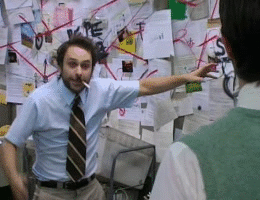
#stranger things#stranger things meta#byler#byler theory#byler meta#i have a whole post on this and im too lazy to finish it#but basically#there's a small teeny weeny reference to the film romancing the stone in s4#and this movie was directed by robert zemeckis#who if you don't know also directed back to the future#his work on romancing the stone was a big part of why back to the future got made in the first place#i learned this watching an ep of the doc-series on netflix 'the movies that made us' in an episode that was all about back to the future#but basically the lead of romancing the stone is an American romance novelist (mike wheeler)#and long story short she ends up getting rescued by some American in an orange vest with a gun in the Colombian jungle (will byers)#and since this guy in romancing the stone came BEFORE marty and from the same director... will is basically him also by default...)#(if you don't remember... s1 will's outfit was widely presumed to be inspired by marty mcfly's from back to the future#the lead was given a map as ransom to find her sister#a map that leads to 'el corazon'#aka 'the heart'#anyways maybe i'll post this analysis soon#bc there's a lot of terrifying byler parallels in this movie#im talking#blue and yellow#7#even an upside down couch??#and i mean el corazon?? like come on
81 notes
·
View notes
Text
“I know I’m a terrible person, even outside what they made me do. I’ve done horrible things to people who cared about me before, why would this be any different” WHYY WOULD YOU HURT ME THIS WAY NOO UR NOT UR NOT A TERRIBLE PERSON
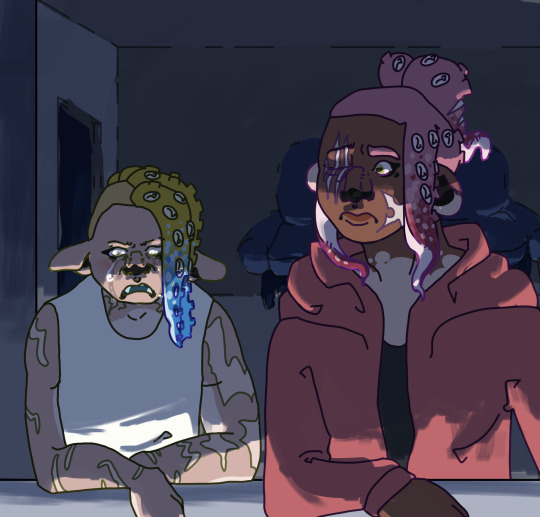
#I know this is probably referring to Callie but I think this might also be because she was taken so young and probably called a monster (1)#and terrible so much she internalized it and thinks of it as true#but that’s just a theory#a film theory#laugh#please#please I’m funny I promise#splatoon#art#fan art#stormy weather splatoon#blue ringed octoling#octoling#not my oc#not my character#ERRR THIS IS SO SAD#i still dont know how tumblr works#i still dont know how to tag#I realized like in the line art phase that they were on opposite sides of where they were meant to be#I think I fucked up pheonixs right ar
19 notes
·
View notes
Text
So I was writing a very big post and then I get a no fit ovation that matpat is leaving game theory and am now heartbroken
Daaaaaaaaaaaaaaamn
Game theory was a massive part of my life growing up and is probably why I’m the pretentious asshole I am today so hungry for information, science, learning, and probably had a lot to do with why I love maths, which basically shaped my whole life going forward. I also wouldn’t be anywhere near as big of a gamer as I am, with some of my favourite games, hollow knight, five nights at Freddy’s, and ESPECIALLY undertale, being introduced to me.
I do not doubt I would be a completely different, and probably a lot more boring, person if it weren’t for this really annoyingly clever moving jpeg, and I wish him nothing but the best.
Here’s hoping we get at least one more fnaf theory out of him
#text post#randyposting#matpat#matthew patrick#game theory#film theory#I’m not tagging the others lmao#oh but gt live?#that was a massive part of my life too#I still reference it often#and ‘clap and a half’ is just something I regularly do#brb crying
3 notes
·
View notes
Text
.
#so#maybe a week ago#there was a post about the doll commercial movie on my dash#and it was about how yeah the movies feminism was like 101 babys first feminism#because the audience it was aimed at arent people who have read feminist theory#so of course it was just The Basics#so that critique of it wasnt really valid or whatever#kinda like the ''are you trying to buy ice cream at the hardware store?'' idea#but more ''why are you trying to sell ice cream at the hardware store?''#and the post annoyed me but im a mature adult who does not have the energy to get into fights on tumblr so i just scrolled past#and i was trying to parse through the annoyance to figure out why it annoyed me so much#and i was thinking ''did it annoy me because i was in this post and i didnt like it?''#but i kept coming back to the two references to native americans in the film and how both were insensitive#one being the comparison of the kens implementing patriarchy to barbieland to the smallpox blankets and hence the wider genocide of natives#and the other being the barbie version of mount rushmore which you know was settlers desecrating the black hills which legally belonged to#natives and was a sacred mountain (going off memory i think the sioux the cheyenne and the lakota people all had claim)#and it was thinking about thst mixed with watching a leftist youtuber cover a prageru video that i realised why that post annoyed me so much#BECAUSE#the criticism wasnt just that the feminism in it is babys first feminism with the training wheels on#(which i also still kinda have a bone to pick with tbh but thats another post for another day)#a major part of the criticsm of the films feminist themes is that they were white feminist themes#the entire film was from the perspective of a white audience#the film was assumedly white if that makes any sense#like barbie is just Original Barbie because she just is. she was the first one and everyone came after her#at no point is her whiteness even acknowledged let alone explored#the film explores things like beauty standards and workplace misogyny and motherhood and the patriarchy in general but it dares not even#tiptoe around race. it just blatantly ignores it the way second wave feminism did. and oh does that coincide so unfortunately with the kens#strike back plot which lowkey perpetuates the myth that giving equal rights to an oppressed group will lead to them oppressing you#the lens from which the film views the world is one of whiteness and ignorance and privilege. white feminism is not feminism 101#basic feminism should not exclude women of colour.
4 notes
·
View notes
Text
Random HC that the 1970 Movie, "Donkey Skin" and the Dreamworks Shrek/Puss in Boots universe take place in the same universe.
#I just finally got a chance to watch “Donkeyskin” and I wasn't expected some Pop Culture References from here or there.#donkey skin#shrek#puss in boots#shrek franchise#non disney#film theory
3 notes
·
View notes
Text
References that may not be references
Similar scenes I’ve noticed in Stranger Things and other shows/movies
——————————————————
Labyrinth:
Nancy falling into the Void / Falling
Snowball with Vecna / Bubble Ballroom
Vecnas mind lair / Floating Staircase
Additional:
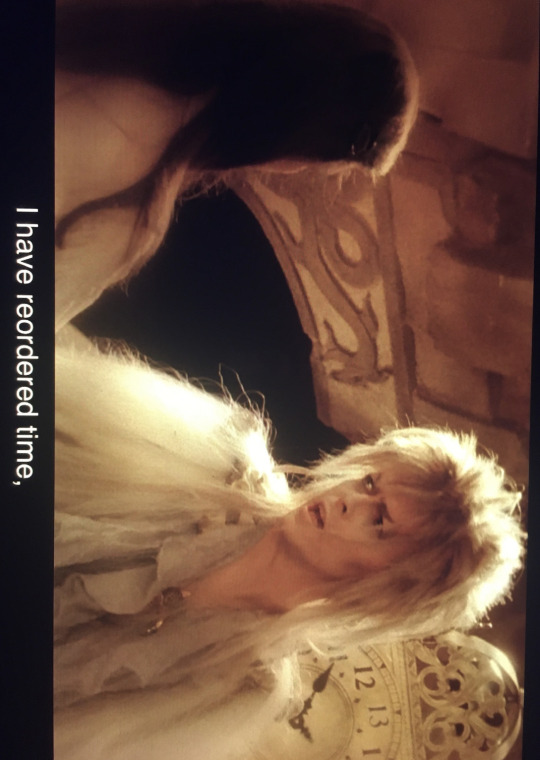
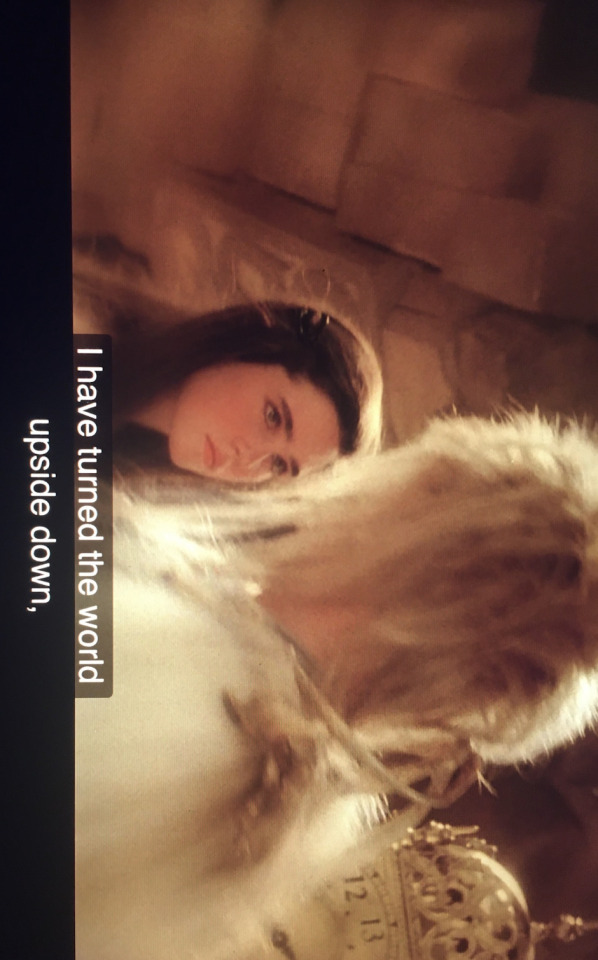
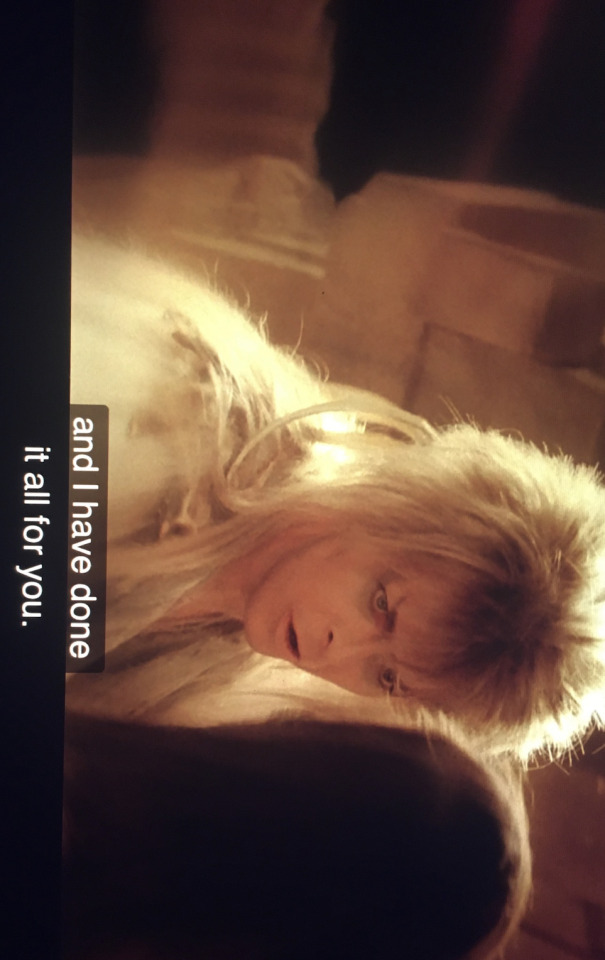
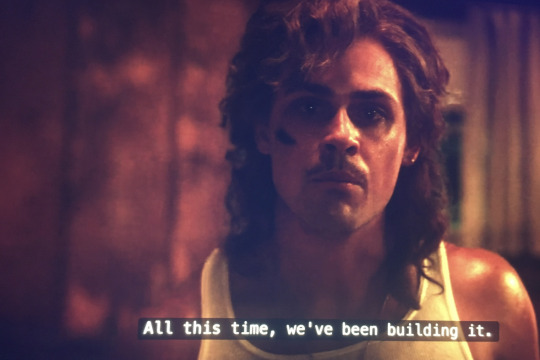
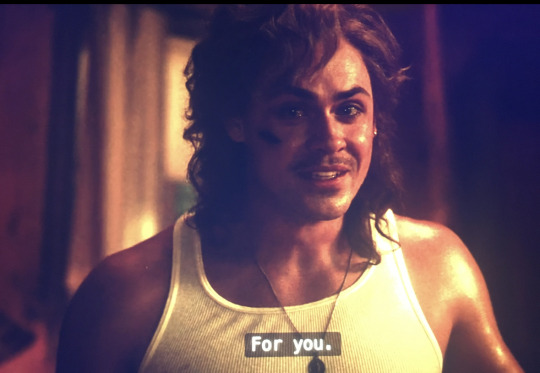
——————————————————
The Terminator:
Intro / Intro
Nancy helps Steve in cave / Sarah helps Kyle in underpass
Billy and Max fight in car / Kyle fights in car
——————————————————
Terminator Two:
Will in Lab / Sarah in Mental Hospital (specifically the shot scene)
Billy walking through mall hall / terminator walking through mall hall
Billy picks up blood / Terminator absorbs shard
Grigori as a character / Terminator
——————————————————
Ferris Buellers:
Music in Enzo’s / Music in Restaurant
——————————————————
Karate Kid:
Daniel biking home and falling / Will biking home and falling
——————————————————
Conan:
I could not sit through this shitshow of a movie BUT it was funny how there was a bowl cut guy and he saves Conan’s life
——————————————————
The Fly:
Main characters kinda look like Steve and Nancy lollll
Def some Billy / flayed transformation stuff inspired by this
——————————————————
St Elmo’s Fire
the scene of Alec and whatever his name is cooking is very reminiscent of Will pizza scene, makes me love stranger things more, they weren’t afraid to make a gay character <3
Halloween party
——————————————————
Napoleon Dynamite:
Snow Ball / High School Dance (same music)
——————————————————
Jaws:
The Shark / The Demogorgon
——————————————————
I don’t know why there’s so many parallels to s3 and Billy in particular… I do not like him. I guess it helps to make him all the more scary if they draw from movies that scared people for a looong time.
This is one of the most amusing things I’ve done in my free time, I’ll continue to add to this list :)
#stranger things theory#stranger things#stranger things thoughts#stranger things parallels#stranger things 2#stranger things 3#labyrinth#stranger things 1#film#cinema#netflix#I really wonder what they’re gonna reference in 5#me and a friend watched The Mist and as he pointed out it would be so neat for them to draw inspiration from that#either way#I’m sure they’ll do a good job#stranger things details#stranger things rewatch#stranger things analysis
3 notes
·
View notes
Text
barbie iceberg meme that has all the discontinued/controversial dolls and barbie cinematic universe movie connections/theories at the top and "mattel is being held at gunpoint by disney not to repeat another ever after high incident and that's why the 2023 greta gerwig film was completely absent of any references to any of the animated movies except the most recent one at the time of the film's production because acknowledging the existence of the princess/fairytale themed barbie movies might in itself be risky with regards to company relations (this is a conspiracy theory it is yet unproven" at the bottom
#also somewhere at the bottom is 'tangled waa in fact directly inspired by barbie as rapunzel and it's not a coincidence'#it's like 3 am and I drank too many coffee cups in one day while working on my barbie paper that I've been procrastinating on#and started thinking about this theory again bc it explains. so much. like the way mermaid power was references but like only as a doll lin#the films not even acknowledged as films#suspicious.
2 notes
·
View notes
Text
My mutuals are so cool. You'd all probably think I'm insufferable irl though
#/lh#this isn't a self deprication thing i prommy#its more referring to the fact that a group of my friends just had to listen to me ramble about film theory for an hour#im a film and history major and if given the chance i will never shut the fuck up about either
4 notes
·
View notes
Text
Goncharov, Multivalence, Inversion
I am surprised that I have seen so little discussion here on how Goncharov (1973) is, at its core, a film about the tension that makes the supposedly concrete untenable. It is a film about dissolution, about the unraveling of the warp and weft that make up the text-as-textile, even as it buoys and supports itself on a far slacker suspension of narrative webbing. It is a titan of post-structuralist filmmaking.1
This tension between irreconcilable co-truths saturates the film. Its setting is Naples — Neapolis — Νεάπολις — that most ancient “young city,” one which can trace its lineage through millennia. Its ostensible focus on the Neapolitan mafia is undercut by the Russian identity of the majority of its characters, Soviet expatriates placed with little explanation or questioning into southern Italy. Indeed, the only Italian characters, Mario Ambrosini and Ice Pick Joe,2 are relegated to minor roles, inverting the traditional oppositions of citizen-immigrant by relegating the former, so often centralized, to the margins of the text.
And with the centralized at the margins, the center of the text is a network of untenable relationships. The web of interpersonal connection portrayed in Goncharov is composed of illicit, fleeting threads, sewn together in a net that is necessarily ephemeral. Katya’s infidelity is clear, and while Goncharov’s remains in the liminal space between text and subtext, his double betrayal at the hands of both his wife and his closest confidant shatter the bonds that he held. It is a network of connections so tenuous that they are liable to break at any moment, unmoored from the concrete, constantly recontextualizing themselves as the characters develop across the film. The center cannot hold.
It is that ever-shifting structure that betrays the genius of the work. Take, for example, when we hear Ambrosini threaten Goncharov’s lover. At the beginning of the work, we, naturally, think of Katya. In the center of the film, as homoerotic undertones build towards a critical mass, we wonder if Ambrosini may have actually been threatening Andrey — only to realize, by the end, that this exact ambiguity is what Ambrosini relied upon in his threat, leveraging his knowledge of Goncharov’s twin yearnings and their fragile, untenable nature. The signifier “lover” could point to either individual, and Goncharov’s — and, on a larger scale, Scorsese’s — refusal to interpret it as clearly signifying one sign or another defers that act of interpretation to the viewer. Lover differs from “wife,” it differs from “partner”; and it defers to “love,” but also to “sex”; it defies neat categorization.3 Whom does Goncharov love? With whom does he have intercourse? Ambrosini’s single word slips through these distinctions like a pointed dirk through chainmail, encompassing — and thus questioning — all of these meanings, trying to get Goncharov to choose. To interpret.
Surely, then, his refusal to interpret is Goncharov’s downfall. His indecision, his lack of choice, spells his doom. When we talk of Katya’s lover, we know we refer to Sofia. Andrey’s is Goncharov himself. Yet Goncharov is split, torn, drawn and quartered under the tension of ambiguity, pulled in all of these directions and undone by the very multivalence of the suggestion.
The film, too, defers on a larger scale — and it oftentimes feels so allusive that there might as well not be a principal text. Goncharov, though it appears during the earliest years of the “Mafia Movie” genre, communicates extensively through genre convention. The text elides points through the use of familiar tropes, swiftly moving through the “standard” parts of such a film by relying on a viewer’s assumption. We need not know the hierarchy of the Neapolitan mafia here, nor the exact relationships between the cast — a mere shot of a wedding ring, a gesture from Goncharov to Andrey, an iconic — though distorted — mirror scene to the prior year’s Godfather, and this particular symphony’s prelude concludes.
Yet in such dense reference and deference, the film paradoxically marks itself as highly distinct from the rest of the genre. It allows for such multiplicity of interpretation thanks precisely to this elision. By situating the majority of its background through connection and reference to other works, Goncharov not only devotes more time to the development of its bespoke elements — the web of tenuous connections that make up the texture of the film, the tensions present in bonds and dissolution of certainties throughout — but allows for inference. Because we have no accurate, plain recollection of much of the events surrounding the film, that multiplicity of meaning inherent in the language used throughout can be applied also to the very chronology and events of the world in which it takes place.
And this, also paradoxically, gives the film its lasting strength to resist the very unraveling to which it subjects its characters, its setting, and its language. Because its connections are far looser, the strain that they place on the film, the script, and the narrative itself are far less. It has room to flex, to sway in the breeze, to accept shock through its plasticity. Far from being weakened by its refusal to commit to a single, concrete interpretation, the text is bolstered.
So, just as we first saw Ambrosini’s mention of “lover” as Katya, then as Andrey, and then as both and neither, Goncharov’s refusal to interpret comes, too, into a different light. It is not his looseness, but the rigidity of those around him, that undoes him. His marriage to Katya, the code of the Mafia, the expectations of his relationship with Andrey — all these things lack the play which Goncharov requires, and which Goncharov exalts. He is torn apart because the web that pulls in all directions pulls too tightly — it attempts rigidity, and breaks apart under its own stress. Were these connections looser, more fluid, Goncharov would not find himself twice-betrayed. Were the central love quadrangle content to sit in the liminality of the word lover, to revel in its ambiguity, to acknowledge and revel in the impossibility of concrete interpretation, Ambrosini’s threat would have fallen flat.
Such is the double-coup of Goncharov. It rests upon and illustrates an inversion of the strong-weak dichotomy. That which should be concrete — marriage, diction, chronology itself — shows itself to be untenable, and breaks under the stress of scrutiny. But that which is far looser — the meanings that shift as the text progresses, the web of illusions the film uses to buoy its plot, the threads of plot that find themselves as allusive as they are elusive — proves itself far stronger for that looseness. Rigidity creates brittleness. There must be play in the machine, lest it, like Goncharov himself, snap in twain where it should bend.4 That which is taken too seriously runs the risk of collapsing under its own weight.
--------------------------------------------------------------------------
1 In this arena, I am in particular indebted to Fairfax 2021, “Beyond Structuralism: Film Form and Écriture.” ; Metz 1997, “Toward a Post-structural Influence in Film Genre Study: Intertextuality and ‘The Shining.’” ; and Karpov 1979, “Deconstructive Drive in Scorsese’s Filmography”
2 Of course, any reference to an Ice Pick in a setting so filled with Soviet expatriates — especially in such close connection with a nickname derived from Joseph — will inevitably call to mind the assassination of Leon Trotsky. Not only does this reinforce the themes of fracture and dissolution within the text by adding the political to the weave, but it foreshadows the grim fate of the other ex-nationals in the film
3 The interplay of difference and deference is, of course, the subject of Derrida’s famous concept of différance (1963, “Cogito et Histoire de la Folie”), and forms the core of Carrington 1982, “Semiotic Interplay in American Cinema: Goncharov’s Unmooring”
4 Play, too, is a Derridean concept leveraged to great success by the Goncharov scholars of the late 1980s, following in the footsteps of Karpov and Carrington above.
#Goncharov#unreality#ironically pretentious critical theory rambling is one of my favorite pastimes#though jokes aside the whole 'analysis of a nonexistent film through a complex series of references with no referent'#is actually super poststructuralist and i love it#goncharov analysis
12 notes
·
View notes
Text
aight i'm back on my bs, Pathaan rewatch begins in 10 minutes
#film: pathaan#pathaan#local gay watches Pathaan (and loses their sh*t while doing so).txt#local gay watches Bollywood.txt#i'm still using this tag bc this rewatch is so recent [since i'm obsessed] it might as well be part of the OG watch sksksksk#going to use this to take more notes and screenshots and pay attention to whatever i might have missed#(like one person in the DCIB comments saying that the 'have a blast' line in Moscow might be a reference to the debacle that went on#when the police arrested Shah Rukh's son Aryan on false charges last year[?]#and used the mention of 'have a blast' in some of his personal texts as pretext for their investigation#from the moment i saw it i thought it was a partial Main Hoon Na ref but you cannot make this sh*t up i swear. you cannot)#if i pull more theories out of my ass just know that this is the reason why
4 notes
·
View notes
Note
i'm sorry but the only crack idea i was able to think of in about 30 seconds as to the "dinner with joe" thing in maverick's calendar (assuming it's none of the characters bc i have NO MEMORY TBH), is that if the test was successful he'd get invited to dinner with the US president but he decided to just write it in his planner as casually as possible LOL. but this theory cannot be true bc idk who on earth on the production team would take the time to edit the name bc the film was filmed in 2018- (jk, if i were there i would-)
I’m cackling this is the best take and is now officially canon to me
This also means he blew off dinner with the president in exchange for one traumatic flashback, one ass-dumping on the sand outside of the Hard Deck, and one rejection from an old flame, not necessarily in that order. This is killing me
#top gun maverick#pete maverick mitchell#you can come back anytime~ in hangman’s yeehaw voice#it’s probably an Easter egg reference to one of the film crew#but this theory is funnier#i snorted out loud
10 notes
·
View notes
Text
oh my fucking gd my friend’s husband (also my friendly acquaintance) is facebook friends with the guy who wrote that MA thesis on jelonka...i’m going to cold email the guy himself like a freak but i’m not afraid to be like. hey. krzys. wanna do me a solid,
#like any good theater scholar from poznan he seems to have been a very catholic teen with a conspicuous britney spears obsession#who got radicalized in school & has been posting nonstop about strikes & protests since like 2015#by which i mean i'm 98.9% sure this man is gay & looking at his friends list & who we know in common my conviction is all the stronger#& that is outstanding bc it indicates his dissertation title was a deliberate tongue-in-cheek reference to the first ostbloc lesbian film#& i can talk to him about queer theory in the PRL#...assuming he is not ragingly put off by some stranger in chicago emailing him like HEY I LOVE YOUR WORK CAN I READ YOUR MASTER'S THESIS
8 notes
·
View notes
Text
I want to see a modern day american bandstand i feel like it would do relatively well i think it maybe could stand a chance if done right
#like it kinda hits the niche that lets plays hit where you watch people doing x its about music and like dances made for those music#if you go early days route it can be about the people who dance on it like the regulars they had in the early days#i think making that a bigger aspect would be something people would be interested in not like reality tv wise#but the appeal of regulars getting to know them the whole like parasocial aspect of it all like for better or for worse#its an aspect that tv film and now social media in general had and can kinda rely on and im not saying its right#but it would mosy likely happen and producers wouldnt be mad abt it anyways#it was abt the now whats young whats hot whats hip#and it had major social impacts#i think it would be interesting to see teens/young people have that kinda spot in media#cause its just a differnet world from online culture#and people made their breaks on bandstand#obvi theres a lot too it and nothing would be perfect and it might work in theory and fail in practice but its interesting to think about#cause it feels as social media grows the like distinctness of like teen culture fades#like its always refered to in the context of social media and how that interacts with traditional media#which is important since theyre now so intertiwned but it feels less prominent to see the two discussed seperatly#and it obvi connects with the lack of real physical spaces teens and young people are allowed to occupy and be in#its just interesting to think about if it makes sense
1 note
·
View note
Text
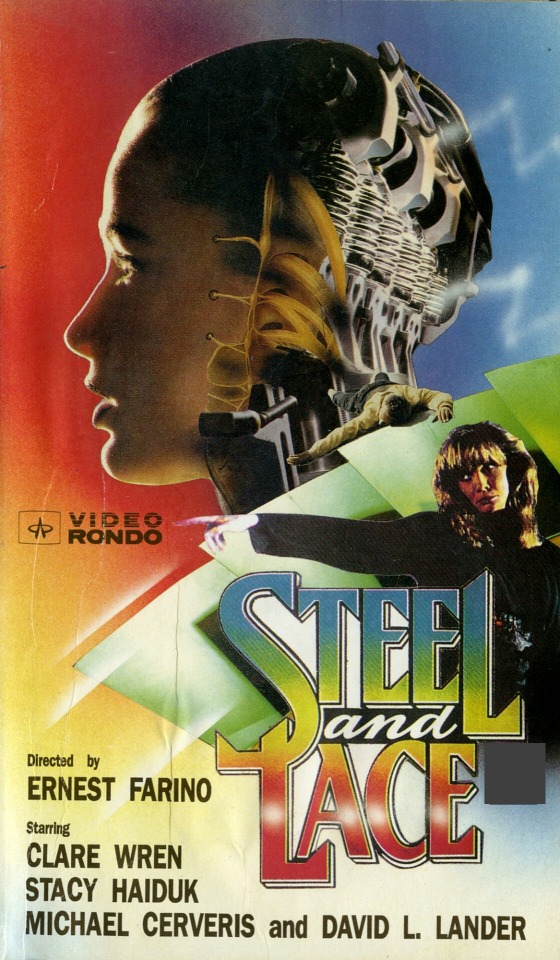

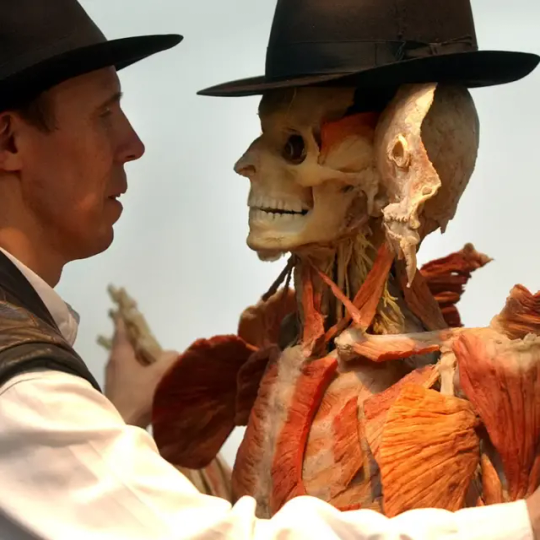
Steel and Lace (1991) | Robo Cop (1987) | Gunther von Hagens w/ a plastinated body
#film theory#this is just for my thesis idea reference but i loved the repetition of the profile#plastination#robo cop#steel and lace#80s movies#film#movies#gradblr
1 note
·
View note
Text
movies that require prior knowledge of a completely different film, for no apparent reason are genuinely one of my biggest enemies
#idk make a call back to that completely separate film on a trailer or smth so the audience knows to watch it beforehand so they can#understand the plot??? since yall wanna be so knowledgeable and quirky w these references 💀✋️#a film from the 30s is actually fucking crazy#color theory class... i fucking hate you i do. truly
0 notes